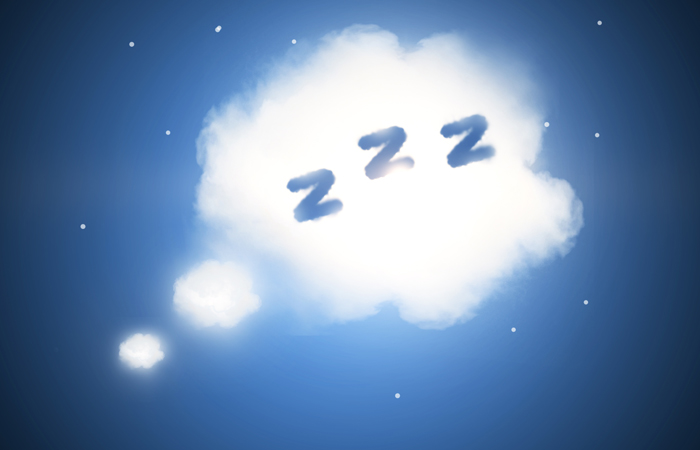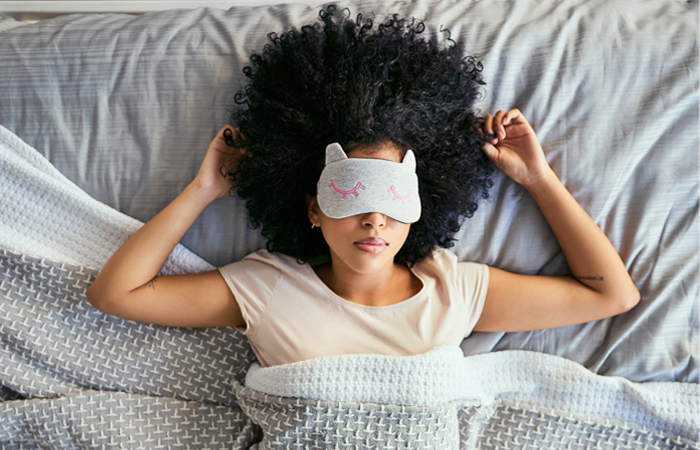Shhh! sleep secrets
In OTC
Follow this topic
Bookmark
Record learning outcomes
A good night’s sleep is important for a healthy lifestyle, but what happens when sleep doesn’t come so easily? Take a look at the latest advice to pass on to pharmacy customers
Poor sleep regularly affects a third of people in Britain but when sleep affects quality of life and ability to function normally it is classed as a more serious health issue: insomnia. “It’s the most commonly reported mental health complaint in the UK. People with insomnia will complain about poor quality sleep, with symptoms that include not being able to get to sleep, waking up in the middle of the night and not being able to get back to sleep and/or waking too early,” explains clinical psychologist and member of the British Sleep Society Dr Gabriella Romano, who runs training and workshops on sleep for health professionals.

In fact, the Government is so concerned about the impact of insomnia on people’s health and wellbeing that it is drawing up guidelines on how much sleep everyone needs and explaining sleep hygiene steps to help achieve it. “Sleep is as important as diet and exercise when it comes to the nation’s health. But we place no importance on it. People go to huge amounts of time and expense to eat well and exercise regularly, but without a good night’s sleep all that effort will be in vain,” says Lisa Artis, chief adviser at the Sleep Council. “Research shows we aren’t getting enough sleep and it’s slipping down people’s lists of priorities.”
Sleep expert Neil Stanley agrees, commenting: “While insomnia itself isn’t increasing, getting a good night’s sleep is no longer as high in importance in today’s modern lifestyles – becoming a luxury for many. Technology and our 24-hour society definitely play a role in this.”
Why is sleep so important?
Sleep is essential for good health and wellbeing, as well as enabling people to get through daily tasks safely and effectively.
Being tired significantly affects judgement and one in five crashes on major roads are related to lack of sleep, according to the Royal Society of Public Health. Other sleep-related accidents are a major cause of injury and death, but insomnia is linked to many more health conditions too such as high blood pressure, diabetes, depression, heart disease, cancer and stroke.
Sleep is important for conserving energy for cell renewal and growth, restoring the brain and body and organising networks in the brain. A recent study published in the Journal of Experimental Medicine discovered that sleep improves the ability of immune cells to fight infection so even just a short period of poor sleep, people become more vulnerable to infection.
Poor sleep also affects appetite-regulating hormones, making cravings for junk food more likely and reducing the inclination to exercise regularly, which links insomnia to obesity.
And it’s not just physical health, almost four in five people with chronic insomnia have low mood and research suggests that insomnia may also be a factor in Alzheimer’s disease. It increases the risk of developing severe depression, suicidal behaviour and suicide. And it’s now thought that insomnia is not just a symptom of mental health conditions but may be involved in the cause and maintenance of these conditions too.
The sleep cycle explained
Sleep patterns are controlled by two systems in the body:
- Sleep/wake homeostasis, which alerts someone when they need to sleep, is the accumulation of sleep-inducing substances in the brain. The longer a person has been awake, the stronger the need for sleep becomes
- The circadian rhythm, or body clock. This is located in the hypothalamus in the brain and regulates an individual’s hours of sleep and wakefulness. It is controlled by a group of brain cells that respond to light and dark and the sleep/wake cycle coordinates with day and night.
A normal night’s sleep is divided into four main parts. Each cycle lasts around 1.5 hours and all four stages need to be experienced in order to wake up rested:
- Non-REM sleep stage 1: a very light stage of sleep from which people can be easily roused. May experience twitching or jerks
- Non-REM sleep stage 2: is still quite a light sleep but the body is preparing for deep sleep
- Non-REM sleep stage 3: is a deeper stage of sleep from which people are more difficult to rouse and people may feel disorientated if woken from this stage of sleep. This provides the most restorative sleep
- Rapid eye movement (REM) sleep: During this stage the brain is active and dreaming can occur. It is vital for mental and emotional development.
Most people need six to nine hours sleep a night. However, younger people tend to sleep for longer and older people for less than this. “There are no hard and fast rules about the amount of sleep each of us needs. It’s more about getting the right amount for the individual that allows them to feel awake and refreshed the next day,” says Neil.
Gearing up Government
A recent survey has revealed that more than two-thirds of people (67 per cent) think more education and public health initiatives from the Government are needed to promote good sleep health.
As a result, the Sleep Council is calling on the Government to make a good night’s sleep a public health priority and place greater emphasis on sleep in terms of advice, education and sleep support services.
“We do understand there’s complexity around sleep. You can’t just tell people to get eight hours of sleep a night. Some people would clearly love to but don’t know how to go about doing that or there may be external factors stopping them,” says Lisa Artis, chief adviser at the Sleep Council. “What we want is for the Government to take action and provide better sleep support services so there is somewhere for people to be signposted to and make sure these services are offered by accredited sleep practitioners.”
Different types of insomnia
Insomnia can generally be divided into two types:
- Primary insomnia is not directly linked to any other health condition or problem and this accounts for around a fifth of cases. It often starts in response to a stressful event or period
and then continues - Secondary insomnia is more common and means the insomnia is a symptom of, or an association with, another condition. These
can be physical, mental or related to drugs or alcohol.
There are many causes of secondary insomnia and it’s important to ask the right questions to find out the cause, which can include the following:
- Sleep disorders such as sleep apnoea, which occurs in people who snore and causes breathing difficulties
- Shift work or jet lag
- Parasomnias – abnormal things can happen in sleep, such as restless legs syndrome, sleep walking, night terrors or teeth grinding
- Stress and anxiety
- Mental health conditions such as bipolar, post-traumatic stress disorder, depression and schizophrenia
- Drinking alcohol, smoking and recreational drugs
- Physical conditions such as heart disease, asthma, arthritis, gastrointestinal disease, Alzheimer’s disease and menopause
- Medication, with common culprits including antidepressants, anti-epileptics, blood pressure tablets, corticosteroids and anti-inflammatories.
Sleep is as important as diet and exercise when it comes to the nation’s health
How can pharmacy staff help?
“Pharmacy staff can support customers with self care tips to help prevent sleep problems by recommending a good bedtime routine and addressing unhealthy sleeping habits,” says Neil.
Part of this may include reassurance about the fact that there is not a set number of hours of sleep someone needs. Some people may need more and some need less than the average six to nine hours a night – it all depends on how they feel during the day. It can also help to explain that it’s normal to wake for short periods during the night and that being anxious about being awake and worrying about poor sleep will only make them less likely to sleep.
“Sleep is as critical to a healthy lifestyle as diet and exercise and customers should be advised on what the effects are from lack of sleep,” says Lisa. “It’s important that pharmacies encourage customers to look at their sleeping patterns and their habits in the run up to bedtime. To ensure they experience healthy sleep it’s essential to follow good lifestyle habits and eliminate the factor or factors that are causing disturbed sleep.”
One in five crashes on major roads are related to lack of sleep
Sleep hygiene advice
The Sleep Council has produced the 10 Commandments of Good Sleep, in conjunction with Professor Jason Ellis, a sleep expert from Northumbria University, as part of its annual sleep awareness campaign Sleeptember.
“With the wealth of studies, surveys and expert opinions, it has led to a lot of conflicting messages. By looking at the different advice and scientific evidence, it’s been possible to create a simple, best practice guide for achieving a healthy night’s sleep,” says Jason. The 10 Commandments of Good
Sleep are:
- Keep a regular sleep routine
- Get outside in natural light
- Exercise regularly
- Avoid stimulants for eight hours before bedtime
- Don’t go to bed full, hungry or thirsty
- Be screen savvy
- Don’t use alcohol to sleep
- Avoid nicotine before bed
- Keep your bedroom cool, dark and quiet
- Hide the clock.
If customers have recently started suffering with sleep issues, Lisa says that sleep hygiene measures may help to solve the problem. “The key is completing a diary for two weeks to see what you are doing, what you are eating etc, on the days when you do and don’t sleep well. From that you can start to identify what sleep hygiene principles to put into place. However, if sleep problems have been going on longer than three months, for at least three nights a week, customers may need some further intervention from their GP.”

Treatment explained
Adopting good sleep hygiene habits should be the first way of managing insomnia and for many people this will be enough. However, for customers who need more help, there are several options available:
- Sedating antihistamines are available both on prescription (promethazine, hydroxyzine) or OTC (diphenhydramine) and can be used short-term, but can cause rebound insomnia if overused
- Herbal remedies such as valerian, passiflora and hops are popular aids, but there is little evidence for their efficacy
- Melatonin is only advised in patients aged 55 and over with chronic insomnia
- Cognitive behavioural therapy for insomnia (CBT-I) is delivered by a health professional trained in behavioural sleep medicine and it combines sleep hygiene measures with behavioural therapy. “CBT-I is made up of a series of therapeutic components that challenge unhelpful thoughts and behaviours perpetuating the maintenance of insomnia,” explains Dr Romano
- Sleeping tablets are prescribed as a last resort for long-term insomnia. This is because of the risk of dependency and failure to address the causes of insomnia. Z-drugs (zopiclone, zaleplon, zolpidem) or short-acting benzodiazepines (nitrazepam, loprazolam, temazepam) can be prescribed, but are usually only given for a week.
A novel idea for drifting off
In conjunction with the Sleep Council, Penguin Random House has developed a series of audiobook stories aimed at people with chronic insomnia, which are designed to help send listeners off to sleep.
The Penguin Sleep Tales series of short stories, each 15 minutes long, is designed to calm the mind and relax the listener, encouraging them to visualise calming settings and landscapes to provide the right frame of mind for sleep.
Penguin Random House’s Ladybird and Puffin brands have also developed audiobook collections to help send children to sleep in conjunction with The Children’s Sleep Charity.
